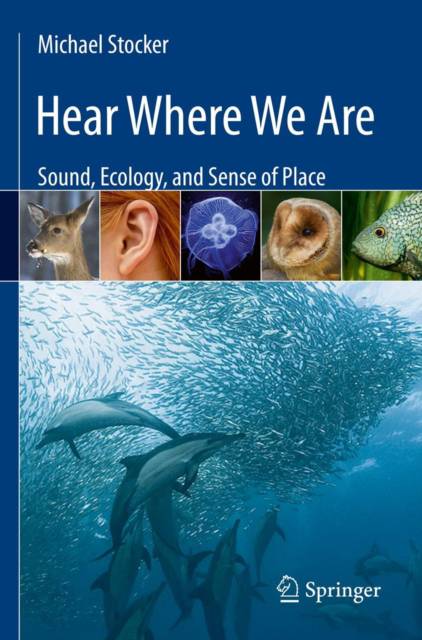
Onze Vivlio e-readers ondervinden momenteel synchronisatieproblemen. We doen er alles aan om dit zo snel mogelijk op te lossen. Onze excuses voor het ongemak!
- Afhalen na 1 uur in een winkel met voorraad
- Gratis thuislevering in België vanaf € 30
- Ruim aanbod met 7 miljoen producten
Onze Vivlio e-readers ondervinden momenteel synchronisatieproblemen. We doen er alles aan om dit zo snel mogelijk op te lossen. Onze excuses voor het ongemak!
- Afhalen na 1 uur in een winkel met voorraad
- Gratis thuislevering in België vanaf € 30
- Ruim aanbod met 7 miljoen producten
Zoeken
€ 39,45
+ 78 punten
Omschrijving
Throughout history, hearing and sound perception have been typically framed in the context of how sound conveys information and how that information influences the listener. "Hear Where We Are" inverts this premise and examines how humans and other hearing animals use sound to establish acoustical relationships with their surroundings.
This simple inversion reveals a panoply of possibilities by which we can re-evaluate how hearing animals use, produce, and perceive sound. Nuance in vocalizations become signals of enticement or boundary setting; silence becomes a field ripe in auditory possibilities; predator/prey relationships are infused with acoustic deception, and sounds that have been considered territorial cues become the fabric of cooperative acoustical communities. This inversion also expands the context of sound perception into a larger perspective that centers on biological adaptation within acoustic habitats. Here, the rapid synchronized flight patterns of flocking birds and the tight maneuvering of schooling fish becomes an acoustic engagement. Likewise, when stridulating crickets synchronize their summer evening chirrups, it has more to do with the 'cricket community' monitoring their collective boundaries rather than individual crickets establishing 'personal' territory or breeding fitness. In "Hear Where We Are" the author continuously challenges many of the bio-acoustic orthodoxies, reframing the entire inquiry into sound perception and communication. By moving beyond our common assumptions, many of the mysteries of acoustical behavior become revealed, exposing a fresh and fertile panorama of acoustical experience and adaptation.
Specificaties
Betrokkenen
- Auteur(s):
- Uitgeverij:
Inhoud
- Aantal bladzijden:
- 200
- Taal:
- Engels
Eigenschappen
- Productcode (EAN):
- 9781461472841
- Verschijningsdatum:
- 21/08/2013
- Uitvoering:
- Paperback
- Formaat:
- Trade paperback (VS)
- Afmetingen:
- 155 mm x 229 mm
- Gewicht:
- 408 g

Alleen bij Standaard Boekhandel
+ 78 punten op je klantenkaart van Standaard Boekhandel
Beoordelingen
We publiceren alleen reviews die voldoen aan de voorwaarden voor reviews. Bekijk onze voorwaarden voor reviews.











